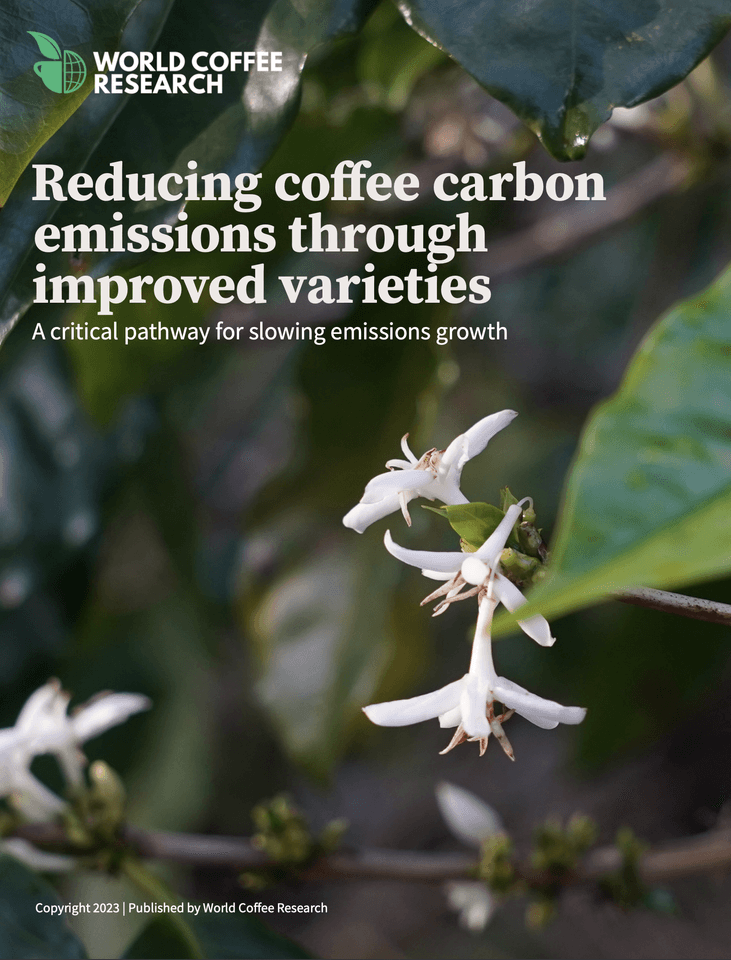
Reducing coffee carbon emissions through improved varieties
This paper demonstrates the potential for improved coffee varieties to reduce carbon emissions. The publication, based on an ex-ante analysis undertaken by WCR, illustrates the value of investing in research and development (R&D) activities like breeding to reduce the coffee industry’s carbon footprint.
The paper’s core analysis utilizes real variety performance data from WCR’s International Multilocation Variety Trial (IMLVT), the world’s largest global coffee variety trial, together with a revised carbon footprint accounting approach for coffee in 2021 by Drs. Umesh Acharya and Rattan Lal (the 2020 World Food Prize winner). These data combined suggest that using existing higher-yielding varieties could reduce coffee farming GHG emissions by nearly a third, strongly pointing to the need for the industry to unleash the potential of coffee varieties to address key sustainability challenges threatening the future of coffee as consumers, farmers, and businesses currently know it.
Summary
The objective of this white paper is to describe the potential to decrease the carbon footprint of coffee farming through increased coffee yields achieved using improved varieties.
Key takeaways
- The development and widespread adoption of higher-performing coffee varieties has the potential to substantially reduce greenhouse gas emissions from coffee agriculture.
- Using higher yielding varieties could reduce the carbon footprint of arabica coffee farming by 32%. This impact is modeled using an improved carbon accounting method for coffee, and real variety performance data coming from the world’s largest arabica variety performance trial, with 29 sites in 18 countries.
- The creation of improved, higher-yielding varieties is a critical pathway for slowing GHG emissions growth from coffee agriculture as global demand continues to rise.
- This paper demonstrates the potential carbon emissions savings that could be obtained from higher yielding varieties without changing other inputs (such as fertilizers).
Contributors and reviewers
World Coffee Research extends special acknowledgment to the following contributors and reviewers of this white paper:
Contributors
Dr. Jorge Berny, Research Scientist, Breeding & Genomics, World Coffee Research
Hanna Neuschwander, Director of Strategy and Communication, World Coffee Research
Reviewers
Dr. Rattan Lal, Distinguished Professor of Soil Science, The Ohio State University
Daniella Malin, Head of Impact and Collaboration, Cool Farm Alliance